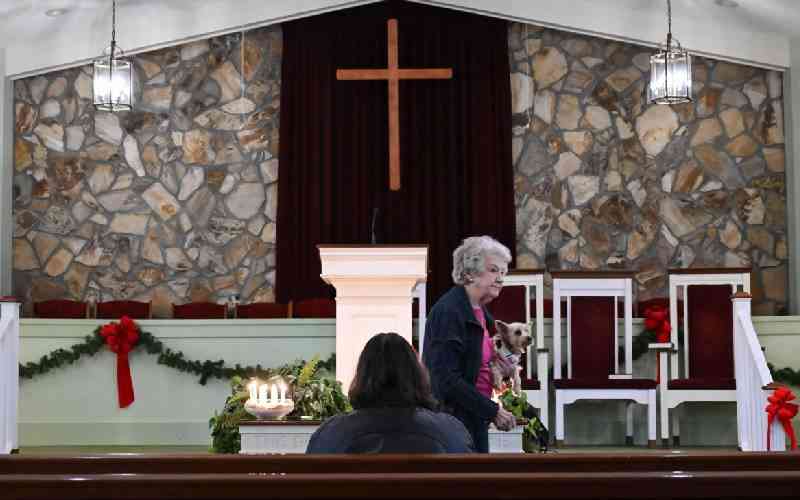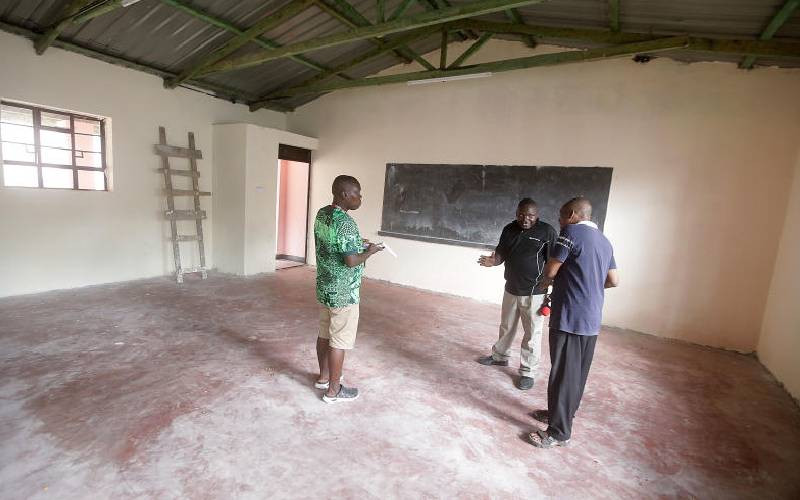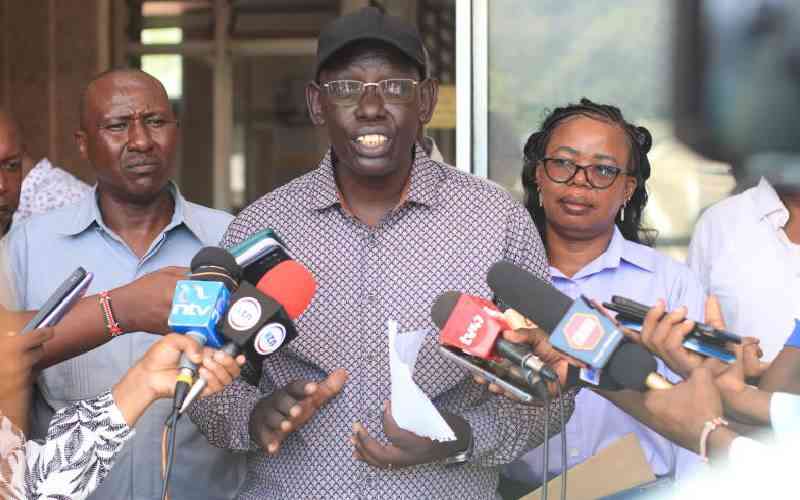
The death of Ruth Bader Ginsburg (pictured) offers US President Donald Trump an opportunity to replace the progressive Supreme Court justice with a staunch defender of conservative values -- even if Democrats are girding for the political equivalent of trench warfare to oppose such a nominee.
Her successor, who would be Trump's third nomination to the high court, is expected to lastingly anchor the country's highest judicial body firmly on the political right. The president is counting on the Republican majority in the Senate to confirm his eventual choice.
Trump said Saturday he would nominate Ginsburg's successor "very soon," adding: "Most likely it would be a woman."
Ginsburg, so popular on the left that she has become a cultural icon, had fought cancer for years, and Trump has had ample time to weigh possible nominees for the 87-year-old's spot.
On September 9, he published a list of potential candidates, a move designed to reassure his political allies and mobilize conservative voters, notably those opposed to abortion rights.
The list is not definitive. Indeed, the two men he has named to the high court -- Neil Gorsuch in 2017 and Brett Kavanaugh in 2018 -- did not appear on an original list of candidates Trump released in 2016.
Here are some names considered among the favorites:
Amy Coney Barrett, a defender of religious rights
The 48-year-old Barrett, who is currently a federal appeals court judge based in Chicago, would be the only conservative woman on the Supreme Court. The two other female justices, Elena Kagan and Sonia Sotomayor, are both progressives appointed by former president Barack Obama.
Barrett grew up in a New Orleans suburb and attended Catholic girls' school before graduating magna cum laude from Rhodes College in Tennessee and then earning her law degree at Notre Dame University, where she was editor of the law review and graduated at the top of her class.
She was a law clerk to Justice Antonin Scalia, a conservative pillar of the Supreme Court until his death in February 2016.
In law journals, she has professed opinions heavily influenced, according to her critics, by traditional religious values.
Barbara Lagoa, a Latina judge
A Cuban-American from Miami, Lagoa was the first Hispanic woman appointed to the Supreme Court of Florida, a swing state that could prove crucial to the outcome of the November 3 presidential election.
Stay informed. Subscribe to our newsletter
Last week, the 52-year-old judge was part of the federal appeals court panel that ruled that ex-felons in Florida cannot vote until they have paid any fees or fines owed to the state, a decision critics say unconstitutionally disenfranchises people unable to pay.
Thomas Hardiman, a fierce pro-gun advocate
A federal appeals court judge in Pittsburgh, Pennsylvania, Hardiman has drawn attention by arguing, among other things, that the First Amendment to the US Constitution would not authorize citizens to film police officers.
Hardiman grew up the son of a taxi driver in Massachusetts and became the first member of his family to go to college. He then financed his law studies at Georgetown University in Washington by driving a cab.
A former Republican activist seen as solidly conservative, he has served alongside Trump's sister, Judge Maryanne Trump Barry, who reportedly has recommended him to her brother.
In several capital cases, Hardiman has backed prosecutors seeking the death penalty. He has also supported intrusive searches of detainees newly arrived in prison, even those there briefly and seen as posing no security risk.
Joan Larsen, a conservative pillar
Larsen, who sits on the federal appeals court in Cincinnati, Ohio, has developed a reputation as a solid conservative, opposed to the extension of gay rights and having taken a tough stance on treatment of prisoners.
She also clerked for Justice Scalia and taught law at the University of Michigan before her nomination to that state's supreme court.
Raymond Kethledge, a strict constitutionalist
A 53-year-old judge originally appointed by George W. Bush, Kethledge grew up in Michigan and now serves on the federal appeals court for the Sixth Circuit, which includes the Great Lakes state.
A fervent defender of free enterprise and individual rights -- notably to private property and arms -- Kethledge is considered a judicial originalist, meaning he believes the US Constitution must be strictly interpreted as it was understood by its 18th-century authors.
A senator?
Republican senators Ted Cruz, Tom Cotton and Josh Hawley are also on Trump's list of candidates. Were he to nominate one of them the choice would be seen as more political than choosing a sitting judge.
 The Standard Group Plc is a
multi-media organization with investments in media platforms spanning newspaper
print operations, television, radio broadcasting, digital and online services. The
Standard Group is recognized as a leading multi-media house in Kenya with a key
influence in matters of national and international interest.
The Standard Group Plc is a
multi-media organization with investments in media platforms spanning newspaper
print operations, television, radio broadcasting, digital and online services. The
Standard Group is recognized as a leading multi-media house in Kenya with a key
influence in matters of national and international interest.
 The Standard Group Plc is a
multi-media organization with investments in media platforms spanning newspaper
print operations, television, radio broadcasting, digital and online services. The
Standard Group is recognized as a leading multi-media house in Kenya with a key
influence in matters of national and international interest.
The Standard Group Plc is a
multi-media organization with investments in media platforms spanning newspaper
print operations, television, radio broadcasting, digital and online services. The
Standard Group is recognized as a leading multi-media house in Kenya with a key
influence in matters of national and international interest.










